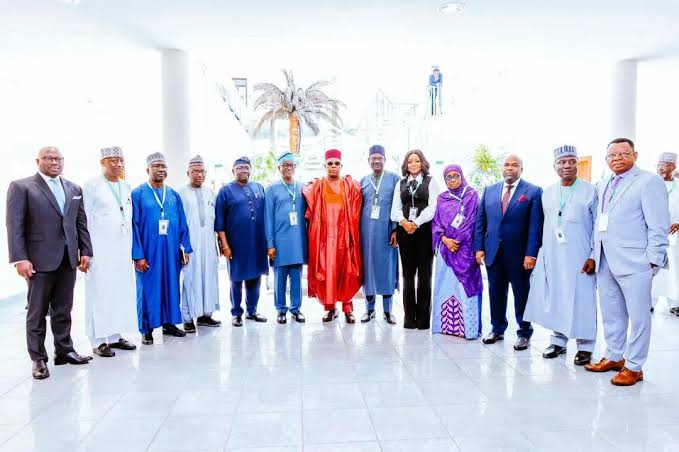Abuja, Nigeria – In a significant step towards modernizing its power sector, Nigeria has inaugurated the board of the Nigerian Independent System Operator (NISO). This move, mandated by the 2023 Electricity Act, aims to unbundle the Transmission Company of Nigeria (TCN) and foster a more efficient and competitive electricity market.
The inauguration, held at the Presidential Villa in Abuja, was overseen by Vice President Kashim Shettima and Minister of Power Adebayo Adelabu, highlighting the government’s commitment to these reforms.
New Leadership to Drive Energy Transformation
President Bola Ahmed Tinubu has appointed Dr. Adesegun Olugbade as Chairman of the NISO board, with Engr. Abdullahi Bello Mohammed serving as Managing Director and CEO. A team of executive and non-executive directors, representing diverse expertise across generation, distribution, transmission, and market operations, has also been appointed (see full list below).
Executive Leadership:
- Engr. Nafisatu Asabe Ali – Executive Director, Systems Operation
- Engr. Shehu Abba-Aliyu – Executive Director, Systems Planning
- Dr. Edmund Eje – Executive Director, Market Operations
- Mr. Babajide Ibironke – Executive Director, Finance & Corporate Services
Non-Executive Directors:
- Engr. Lamu Audu – Generation
- Mrs. Folake Soetan – Distribution
- Tajudeen Giwa-Osagie – Market Expert
- Engr. Sule Ahmed Abdulaziz – Transmission
- Alhaji Mahmuda Mamman – Permanent Secretary, Federal Ministry of Power
NISO’s Role in Power Sector Liberalization
The establishment of NISO is a key component of Nigeria’s strategy to attract private investment and improve the reliability of its power grid. By separating system operation from transmission ownership, the government aims to:
- Enhance transparency and efficiency in grid management.
- Create a level playing field for electricity market participants.
- Attract foreign direct investment in the energy sector.
- Improve power delivery and reduce outages.
NISO will be responsible for market operations, system planning, and real-time grid management, playing a crucial role in Nigeria’s energy future.
Part of Broader Economic Agenda
This initiative aligns with President Tinubu’s “Renewed Hope Agenda,” which prioritizes infrastructure development and energy sector modernization. The creation of NISO demonstrates the government’s commitment to creating a sustainable and reliable power supply, seen as essential for driving economic growth and improving living standards across Nigeria. The reforms are being closely watched by international investors and energy experts as a bellwether for broader economic reforms in Africa’s largest economy.



